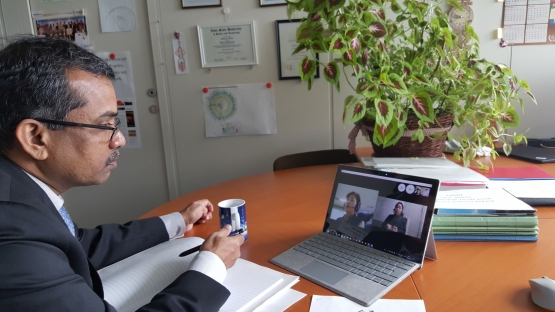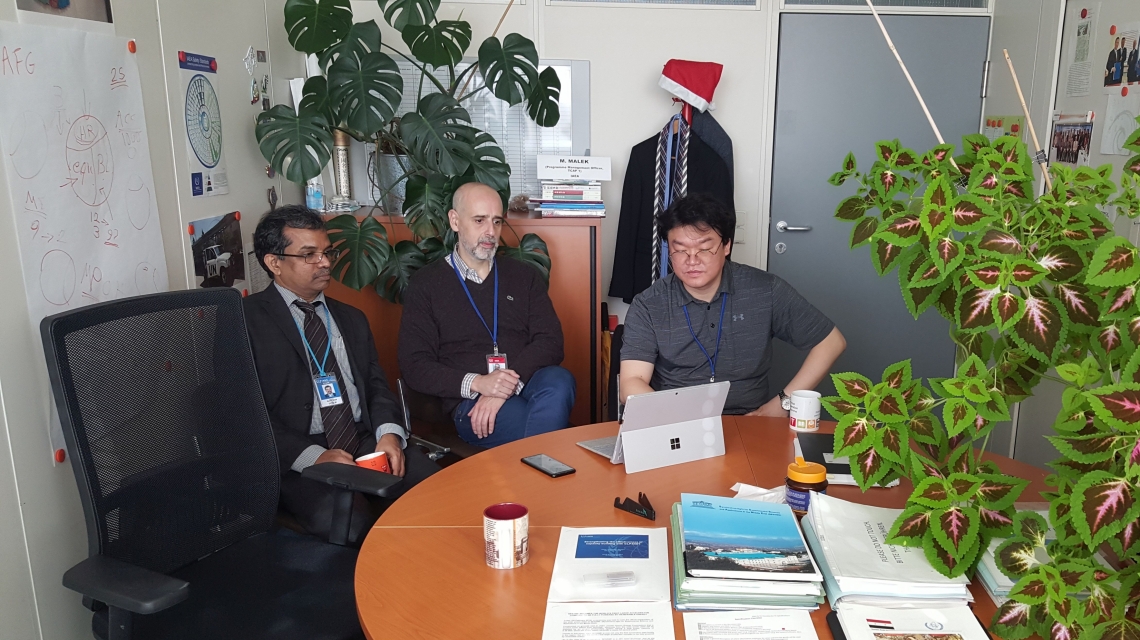In 2018, when IAEA experts proposed the development of a virtual conference scheme to facilitate the work of counterparts in 24 countries engaged in an ongoing technical cooperation (TC) project[1], they couldn’t have known how valuable this initiative would be, just two years later. Designed to support nuclear education and training in Asia and the Pacific, the project’s implementation has continued unabated and little affected by the social distancing policies established to curb the spread of the virus causing the COVID-19 disease.
The overall objective of the four-year TC regional project, launched in 2016, has been to promote the use of nuclear science and technology and to enhance institutional capacity building in the region by working with educators and officials to build new and strengthen existing education and training (E&T) networks. By supporting the development of new, innovative nuclear educational products to encourage budding scientists to explore nuclear topics, and by later disseminating those products through the Asian Network for Education in Nuclear Technology (ANENT) and other associations, the project will help generate an adequate pipeline of motivated, qualified experts in the region to support the sustainable and ongoing use of nuclear technologies, particularly power applications.
ANENT has 21 member countries and uses a bespoke web portal, hosted and maintained by the Korea Atomic Energy Research Institute, to keep counterparts across Asia in close communication. The web portal uses a MOODLE-based Learning Management System and a Learning Object Repository to provide its users with a platform for creating and conducting e-learning courses and for sharing educational materials. The platform provides a cost-effective means by which universities and academic institutions in the region can develop and share high-quality educational resources related to nuclear science and technology. As a result, knowledge and experience available in one country can be easily transmitted to others.






